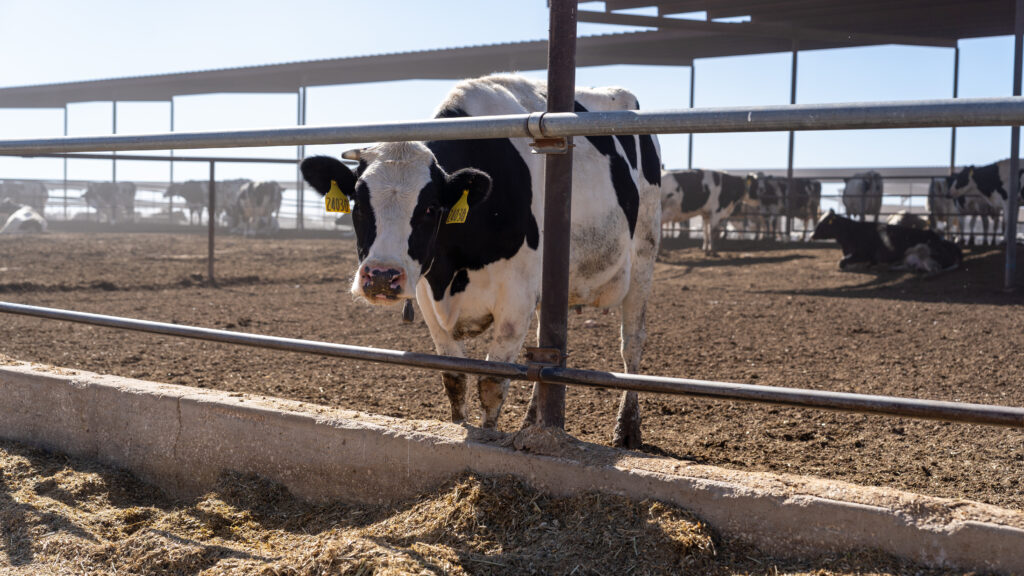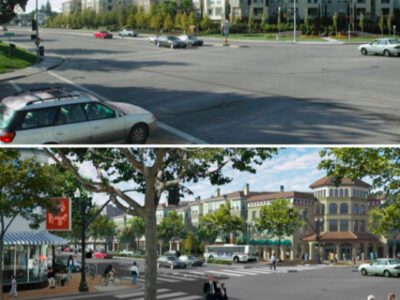7 Reasons California Should Get Tougher on Methane from Dairies
California lawmakers should rethink the role of dairy digesters in the state’s dairy and livestock mitigation strategy.

Even though California aims to decrease the emissions of methane, dairy operations are rewarded for creating, and capturing, more and more of the planet-warming super pollutant in the form of manure-derived biogas. Today, California lawmakers declined to correct that perverse incentive, but they still have opportunities to rethink the state’s embrace of digesters as its primary mitigation tactic.
This morning, the Emmett Institute released a policy report analyzing several commonly raised issues regarding California’s dairy digester policy. The report comes as the California legislature declined to move on SB 709, a bill introduced last year to reform the role of dairy biogas in the Low Carbon Fuel Standard, or LCFS. It also comes in the wake of the January 2024 date after which the California Air Resources Board (CARB) is authorized to regulate methane from dairy operations pursuant to SB 1383 (more on that here).
The report analyzes five issues as they relate to California’s dairy digester policy: the emissions from and prevalence of different manure management practices, CARB’s life cycle analysis for transportation fuels from dairy biogas, dairy industry consolidation, the risk of emissions leakage in response to regulation of dairy methane, and California’s climate targets.
7 of the report’s key takeaways include:
- California has more mega-dairies than any other state and, according to CARB, “higher per-milking cow methane emissions than most of the rest of the United States, due to the widespread use of flush water lagoon systems for collecting and storing manure.”
- Incentivizing dairy digesters is a mitigation approach designed to keep this industrial model the same, rather than shift towards a more sustainable dairying model—even though alternatives are more common in other states.
- The embrace of industrialized dairies in California has resulted in ongoing pollution burdens to environmental justice communities, particularly in the Central Valley. Investing further in this industrialized model of dairying perpetuates these burdens.
- The LCFS rewards captured (or “avoided”) methane. This means that the more emissions dairy operations generate, the more they can capture, the more reductions they can tout publicly, and the more revenue they obtain through LCFS credits.
- CARB does not monitor emissions from biogas systems on an ongoing basis, despite substantial concern about fugitive emissions from environmental scientists.
- Data that can help parse whether LCFS credits have accelerated the preexisting trend towards dairy consolidation will be available soon, with the release of the 2022 Agriculture Census in February.
- Concerns about emissions leakage in response to potential regulation of dairy methane are likely overblown, and a range of policy measures exist to mitigate the likelihood of leakage.
- Even with lucrative LCFS credits for dairies, California is not on track to meet methane targets for dairy and livestock. At the same time, California’s embrace of dairy digesters as the primary method of emissions reductions impedes more holistic changes to dairy operations.
An additional important question that should be analyzed in the future is how a mitigation policy that favors dairy digesters impacts the natural gas industry and natural gas infrastructure. When manure-derived biogas is used as renewable natural gas (instead of burned onsite for electricity generation, for example) it is transported through pipelines. Not only does this require new infrastructure, investing climate mitigation resources into natural gas, but it increases the amount of natural gas flowing through common carrier pipelines. At the same time, a recent report from the Environmental Defense Fund found that “natural gas pipelines nationwide are leaking as much as 2.6 million tons of methane each year.” Ensuring that there are not substantial losses of methane captured by dairy digesters and that policies favoring digesters aren’t unintentionally entrenching the natural gas industry deserve thorough analysis.
California policymakers have a crucial role to play leading the nation in decarbonizing agriculture and in shaping the policy landscape needed to support a sustainable and just dairy industry. Dairy operators are doing their best to survive in the existing policy landscape—we urgently need to transform that landscape so more sustainable farms can compete and thrive, and to lessen the serious environmental justice burdens imposed on neighboring communities.






Reader Comments